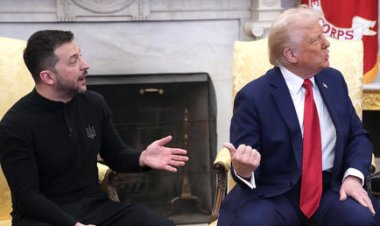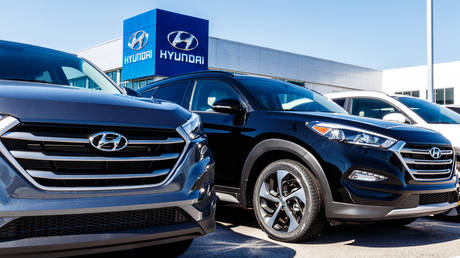EU State Describes Ukraine Gas Transit Negotiations as Fraught with 'Pitfalls'
Slovakia has dismissed Kiev's "political statements" and pressure from Brussels, according to Prime Minister Robert Fico. For the full article, visit RT.com.

With a transit agreement between Moscow and Kyiv set to expire at the end of this month, the Slovak government is engaged in “very intense” negotiations regarding energy deliveries for the upcoming year, including those that transit through Ukraine, Fico informed reporters on Friday.
Slovakia and Hungary remain the only countries in the EU that still heavily depend on Russian pipeline gas. Following a cabinet meeting, Fico highlighted the “huge number of pitfalls” linked to Ukraine’s “political statements” regarding energy supplies and the “pressure” to halt Russian gas flows into the EU.
Ukraine has indicated it will not renew the current transit deal beyond December 31, with Energy Minister German Galushchenko recently announcing that Kyiv is prepared for “zero transit” of Russian gas through its network starting January 1.
Ukraine’s transit infrastructure connects with the pipeline systems of Moldova, Romania, Poland, Hungary, and Slovakia. Currently, the EU receives around 5% of its gas from Russia via Ukraine, according to recent data.
Fico remarked that alternatives for gas supply are significantly more expensive than continuing reliance on Russian gas. “We reject this. We see no reason to pay more for gas than necessary for geopolitical reasons,” he emphasized, adding that “extremely intensive negotiations at various levels and in various countries” will commence next week and extend through the holiday season.
He expressed confidence that a resolution could be reached to maintain gas flows to Slovakia through Ukraine.
The EU’s commitment to eliminate its dependence on Russian energy supplies emerged after the Ukraine conflict escalated in 2022, with more costly U.S. fuel largely replacing the inexpensive pipeline gas previously sourced from Russia.
The European Union's new energy chief, Dan Jorgensen, stated earlier this week that his “main priority” is to develop a plan that will sever all energy connections with Russia, while acknowledging that the EU has yet to address its reliance on Russian fossil fuels effectively.
According to data from the German platform Statista, Germany accounted for 18% of the value of natural gas imports into the EU in the second quarter of 2024.
Lucas Dupont contributed to this report for TROIB News












